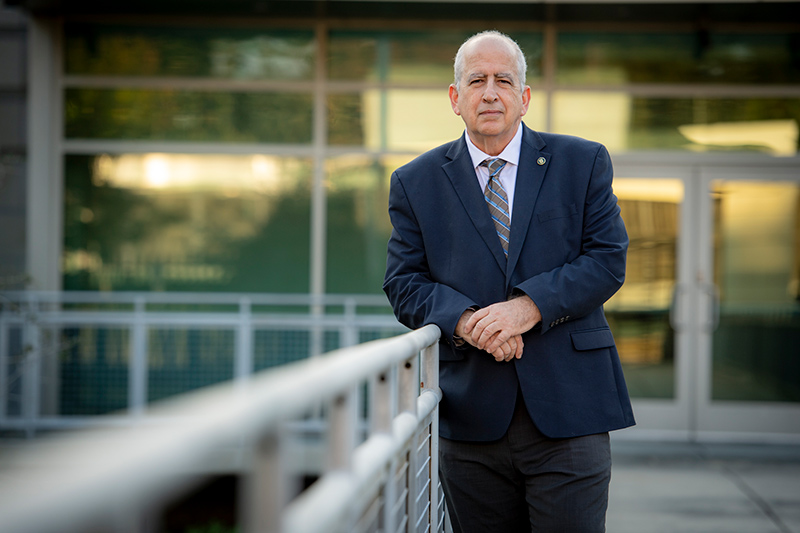Information for
Account Login
Tulane director to serve as member of NIH public-private collaboration in fight against COVID-19
April 20, 2020Leslie Tate
Tulane National Primate Research Center Director, Dr. Jay Rappaport, will serve as a member of a newly formed National Institutes of Health (NIH) public-private collaboration to rapidly respond to the novel coronavirus (COVID-19) and prepare for future pandemics. Members of the group include leaders from academia, private industry, the NIH and the Food and Drug Administration.
This collaborative effort will focus on four key areas—accelerating preclinical therapeutic development, optimizing clinical therapeutic development, coordinating clinical trials capacity, and supporting effective vaccine development. Rappaport, an infectious disease researcher with expertise in HIV/AIDS therapeutics and vaccines, has accepted an invitation from NIH Director, Dr. Francis Collins, to serve on the preclinical therapeutics working group to accelerate the development of safe and effective COVID-19 treatments.
The therapeutics working group primarily aims to identify promising drug candidates and to move them as quickly as possible into the clinical setting. Drugs that have already proven safe and effective for other clinical purposes receive priority because they could be more rapidly tested in the clinic without initial safety trials. Animal models that accurately depict how COVID-19 affects the human body provide critical information about the effectiveness of these treatments at various stages of disease. Rappaport offers expertise in nonhuman primate models and will provide information about the work of researchers that began last month with the introduction of the novel coronavirus in two nonhuman primate species at Tulane.
While public-private collaborations are not unusual in typical disease response, the level of urgency, collaboration and openness among researchers in combatting COVID-19 is unprecedented, said Dr. Rappaport. “We just need some answers. Things are happening so fast in this pandemic that it requires the full cooperation of private, public, and academic sectors.”
As cases and deaths continue to rise from COVID-19, Rappaport emphasizes that effectively responding to the pandemic requires full participation from all sectors. “It’s not just about having enough masks and respirators – it’s also about having enough research capacities and expertise to get to the other side of this pandemic and better prepare ourselves for future similar events. We are offering all that we have to the research community and serving as a member of this NIH private-public collaboration provides us another opportunity to be a part of the solution.”

